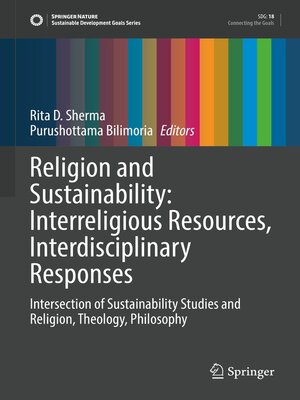Religion and Sustainability
ebook ∣ Interreligious Resources, Interdisciplinary Responses: Intersection of Sustainability Studies and Religion, Theology, Philosophy · Sustainable Development Goals Series
By Rita D. Sherma

Sign up to save your library
With an OverDrive account, you can save your favorite libraries for at-a-glance information about availability. Find out more about OverDrive accounts.
Find this title in Libby, the library reading app by OverDrive.



Search for a digital library with this title
Title found at these libraries:
| Library Name | Distance |
|---|---|
| Loading... |
To enable the restoration and flourishing of the ecosystems of the biosphere, human societies need to be reimagined and reordered in terms of economic, cultural, religious, racial, and social equitability. This volume illustrates transformative paradigms to help foster such change. It introduces new principles, practices, ethics, and insights to the discourse. This work will appeal to students, scholars, and professionals researching the ethical, moral, social, cultural, psychological, developmental, and other social scientific impacts of religion on the key markers of sustainability.







